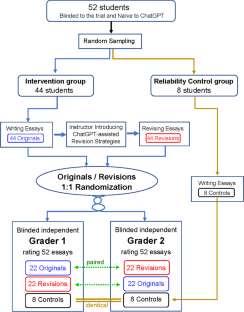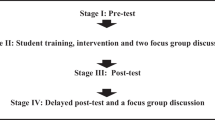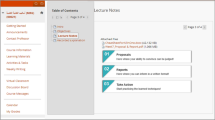Abstract
Purpose
To determine the impacts of using ChatGPT to assist English as a foreign language (EFL) English college majors in revising essays and the possibility of leading to higher scores and potentially causing unfairness.
Design
A prospective, double-blinded, paired-comparison study was conducted in Feb. 2023. A total of 44 students provided 44 original essays and 44 ChatGPT-assisted revised essays, which were rated by two independent graders in a randomized and crossover fashion to minimize grading bias. The original and revision scores were paired for before-after comparison. Eight control essays were also rated by both graders to ensure inter-rater reliability.
Findings.
This study used a rigorous experimental design to confirm that ChatGPT-assisted revised essays led to significantly higher scores for EFL college English majors. Significant improvements were observed in all four dimensions of writing quality assessment, with the largest effects observed in vocabulary, followed by grammar, organization, and content. ChatGPT-assisted revised essays shifted the score curve from a normal distribution to a skewed distribution towards higher grades, with the greatest increase in revision scores seen among students who had lower original scores. This disproportionate improvement raises concerns about fairness in evaluation.
Value.
The findings suggest that ChatGPT is effective in providing timely feedback to EFL English majors in an affordable manner, but it also highlights the potential for unfairness in writing evaluation. We should note that ChatGPT-assisted revisions do not reveal learners’ writing competence. Therefore, new forms of writing performance assessment should be implemented in EFL composition classes in this AI era.





Similar content being viewed by others
Data availability
Data is available upon reasonable request to the corresponding author.
References
Carvalho, L., Martinez-Maldonado, R., Tsai, Y.-S., Markauskaite, L., & De Laat, M. (2022). How can we design for learning in an AI world? Computers and Education: Artificial Intelligence,3, 1–9. https://doi.org/10.1016/j.caeai.2022.100053
Cotton, D. R., Cotton, P. A., & Shipway, J. R. (2024). Chatting and cheating: Ensuring academic integrity in the era of ChatGPT. Innovations in Education and Teaching International, 61(2), 228–239.
Fang, Y. (2010). Perceptions of the Computer-Assisted Writing Program among EFL College Learners. Journal of Educational Technology & Society,13(3), 246–256.
Gao, C. A., Howard, F. M., Markov, N. S., Dyer, E. C., Ramesh, S., Luo, Y., & Pearson, A. T. (2023). Comparing scientific abstracts generated by ChatGPT to real abstracts with detectors and blinded human reviewers. NPJ Digital Medicine, 6(1), 75.
Godwin-Jones, R. (2022). Partnering with AI: Intelligent writing assistance and instructed language learning. Language Learning & Technology, 26(2), 5–24.
Henrickson, L. (2022). Cheating on your college essay with ChatGPT won’t get you good grades, say professors – but AI could make education fairer. Insider. https://www.businessinsider.com/professors-say-chatgpt-wont-kill-college-essays-make-education-fairer-2022-12. Accessed 17 Jan 2023.
Li, J. (2021). Research on AI-assisted hybrid teaching for English writing. In 2021 International Conference on Computers, Information Processing and Advanced Education (CIPAE), (pp. 309–312). IEEE.
Lim, W. M., Gunasekara, A., Pallant, J. L., Pallant, J. I., & Pechenkina, E. (2023). Generative AI and the future of education: Ragnarök or reformation? A paradoxical perspective from management educators. The International Journal of Management Education,21(2), 100790.
Qi, D. S., & Lapkin, S. (2001). Exploring the role of noticing in a three-stage second language writing task. Journal of Second Language Writing,10(4), 277–303.
Ranalli, J., & Yamashita, T. (2022). Automated written corrective feedback: Error-correction performance and timing of delivery. Language Learning & Technology,26(1), 1–25.
Rudolph, J., Tan, S., & Tan, S. (2023). ChatGPT: Bullshit spewer or the end of traditional assessments in higher education? Journal of Applied Learning and Teaching, 6(1), 342–363.
Sachs, R., & Polio, C. (2007). Learners’ uses of two types of written feedback on a L2 writing revision task. Studies in Second Language Acquisition,29(1), 67–100.
Saricaglu, A. (2019). The impact of automated feedback on L2 learners’ written causal explanations. ReCALL,31(2), 189–203. https://doi.org/10.1017/S095834401800006X
Selber, S. (2022). Cheating on your college esssay with ChatGPT won’t get you good grades, say professors – but AI could make education fairer. Insider. https://www.businessinsider.com/professors-say-chatgpt-wont-kill-college-essays-make-education-fairer-2022-12. Accessed 16 Jan 2023.
Stacey, S. (2022). Cheating on your college essay with ChatGPT won’t get you good grades, say professors – but AI could make education fairer. Insider. https://www.businessinsider.com/professors-say-chatgpt-wont-kill-college-essays-make-education-fairer-2022-12. Accessed 16 Jan 2023.
Stokel-Walker, C. (2022). AI bot ChatGPT writes smart essays – should professors worry? Nature. https://doi.org/10.1038/d41586-022-04397-7
Straume, I., & Anson, C. (2022). Amazement and Trepidation: Implications of AI-Based Natural Language Production for the Teaching of Writing. Journal of Academic Writing,12(1), 1–9. https://doi.org/10.18552/joaw.v12i1.820
Susnjak, T. (2022). ChatGPT: The end of online exam integrity? arXiv. https://doi.org/10.48550/arXiv.2212.09292
Truscott, J., & Smith, M. S. (2011). Input, intake, and consciousness: The quest for a theoretical foundation. Studies in Second Language Acquisition,33(4), 497–528.
Zhai, X. (2022). ChatGPT user experience: Implications for education. SSRN Electronic Journal. https://doi.org/10.2139/ssrn.4312418
Zomer, Z., & Frankenberg-Garcia, A. (2021). Beyong Grammar Error Correction: Improving L1-influenced research writing in English using pre-trained encoder-decoder models. In Findings of the Association for Computational Linguistics: EMNLP 2021 (pp. 2534–2540).
Author information
Authors and Affiliations
Contributions
C.Y. Tsai contributed to study design, data analysis, and the first draft of the manuscript, while Y.T. Lin contributed to data acquisition, discussion, and critical revision as a corresponding author. I. Brown contributed to data acquisition.
Corresponding author
Ethics declarations
The participants were protected in accordance to the ethics guidelines and the details were described in the section on participants.
Competing Interests
We, the authors, declare that we have no known competing financial interests or personal relationships that could have appeared to influence the work reported in this paper.
Additional information
Publisher's Note
Springer Nature remains neutral with regard to jurisdictional claims in published maps and institutional affiliations.
Supplementary Information
Below is the link to the electronic supplementary material.
Rights and permissions
Springer Nature or its licensor (e.g. a society or other partner) holds exclusive rights to this article under a publishing agreement with the author(s) or other rightsholder(s); author self-archiving of the accepted manuscript version of this article is solely governed by the terms of such publishing agreement and applicable law.
About this article
Cite this article
Tsai, CY., Lin, YT. & Brown, I.K. Impacts of ChatGPT-assisted writing for EFL English majors: Feasibility and challenges. Educ Inf Technol (2024). https://doi.org/10.1007/s10639-024-12722-y
Received:
Accepted:
Published:
DOI: https://doi.org/10.1007/s10639-024-12722-y




